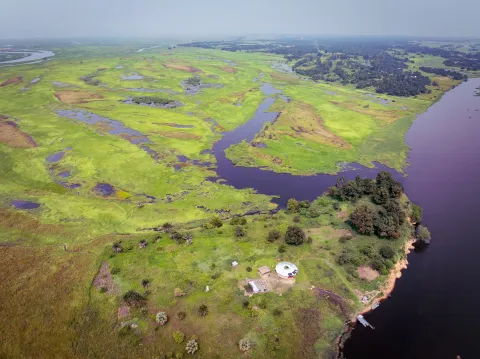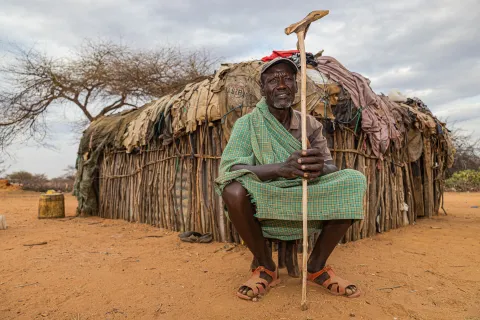Share the page
Biodiversity

Our commitment
Biodiversity is one of the three fundamental and original pillars of the FFEM, with more than half of the projects funded since its creation dedicated to this issue. Over the years and through innovation, the FFEM's action for biodiversity has adapted, in a spirit of capitalisation and constant improvement.
Our action today
The FFEM's work is part of France's commitments under the United Nations Convention on Biological Diversity (CBD) and the 2030 conservation goals of the new global biodiversity framework. The FFEM makes a specific contribution to global biodiversity conservation objectives by ensuring that local people are involved in the management of their natural resources and protected areas, in order to reconcile conservation and development.
Our cross-disciplinary approach
Climate change and biodiversity loss share common causes and interact closely: they should not be treated as two separate emergencies. Biodiversity is under increasing pressure from land and sea use change, overexploitation of natural resources, climate change, pollution and invasive alien species. In this context, a cross-cutting approach is essential: conservation actions must be designed in an integrated manner, systematically seeking co-benefits with other environmental issues, particularly those related to climate and pollution. This approach enhances the coherence and effectiveness of responses to these closely interlinked crises.
Protected areas contribute to biodiversity conservation and provide essential ecosystem services. However, the current conservation record shows that much remains to be done: the Aichi Targets have not been met. This is due to significant gaps in ecological connectivity and a lack of data on the effectiveness of protected area management. Today, only 7% of these areas worldwide are both protected and connected, and nearly 25% are thought to be inadequately managed or poorly managed.
 © Limaya Studio
© Limaya Studio
While preserving it, biodiversity can be made an asset for local, fair, and sustainable development. It can, among other things, generate co-benefits for economic and social development, for climate change mitigation and adaptation, and for the health of the population.
 © Commerce Equitable France
© Commerce Equitable France
The degradation and fragmentation of natural ecosystems are among the main causes of biodiversity loss. Ecological corridors and networks of protected areas enable species mobility and give them the opportunity to adapt to changing climatic conditions.
The ecological restoration of degraded ecosystems, damaged or destroyed, restores essential ecosystem functions and contributes to connectivity. It is also an effective means of combating invasive species that more easily colonise degraded natural habitats.
 © B. Anthony Ochieng - Tony Wild - NRT
© B. Anthony Ochieng - Tony Wild - NRT
Focus on the Small Initiatives Programme (SIP)
Since 2006, the Small Initiatives Programme (PPI), supported by the FFEM and implemented by the French Committee of the UICN, has been supporting Sub-Saharan African civil society organisations (CSOs) through funding for small biodiversity conservation and climate change mitigation projects. In 2014, PPI OSCAN, implemented by the Mediterranean UICN, has joined the program to support North African CSOs.
 © PPI, Films au clair de lune
© PPI, Films au clair de lune
Download the FFEM brochure on biodiversity
In the field
Key figures, projects, news and publications are just a click away.
In figures
-
176 projects funded since 1995
-
215 M€ committed since 1995
-
44 projects underway in 2025
-
72 M€ committed since 2025
Focus on our projects
Our other priority themes
Focus on our publications








